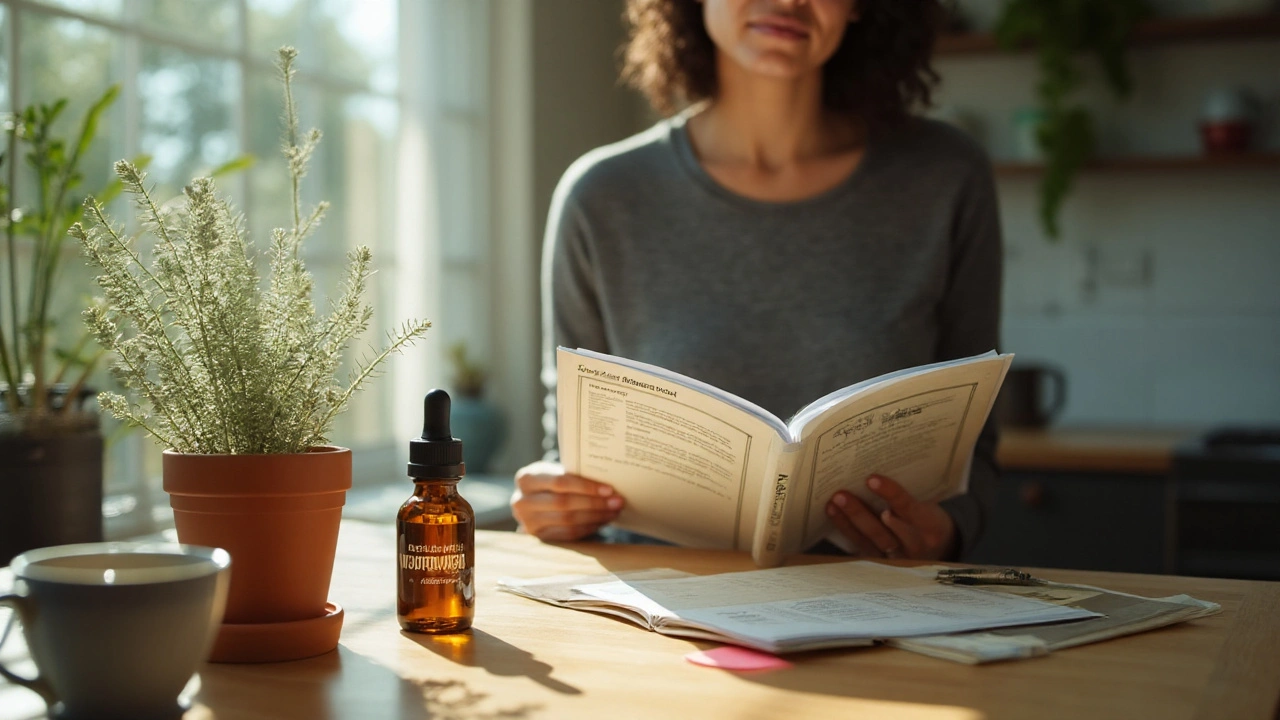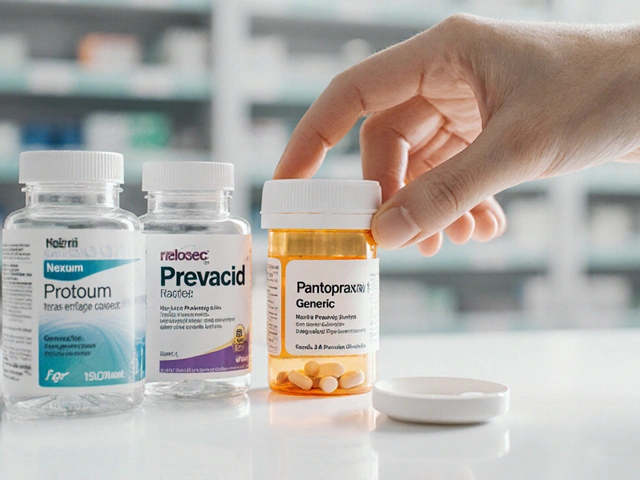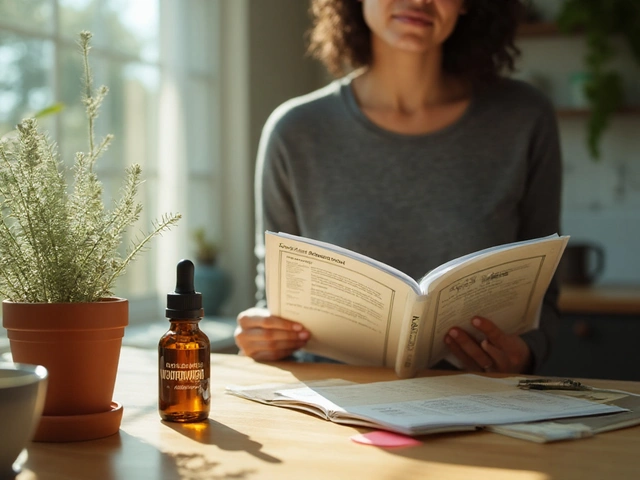
Bitter is back. If your gut feels heavy after meals, your appetite is off, or you keep hearing that wormwood can help with parasites, you want clarity, not hype. Here’s the honest take: wormwood can be a smart, short-term tool for digestion and specific situations, but it’s not a cure-all and it’s not for everyone. As someone in Melbourne who keeps a tiny bottle of bitters next to the pepper grinder, I’ll show you what it actually does, how to use it safely, and when to skip it.
- wormwood benefits are best for loss of appetite and mild dyspepsia; evidence for parasites and gut bugs in humans is limited.
- Use short-term and low-dose as a bitter before meals; avoid essential oil and high-thujone products.
- Not for pregnancy, breastfeeding, seizure risk, active ulcers, or if you’re on meds that lower seizure threshold.
- Pick products with the Latin name (Artemisia absinthium), thujone control, and Australian TGA ‘AUST L’ if buying here.
- If you suspect parasites or have IBD, talk to your clinician first-don’t self-treat.
What wormwood is and what it actually helps with
Wormwood (Artemisia absinthium) is the sharp, aromatic herb behind the classic digestive bitters tradition. It’s not the same as Artemisia annua (sweet wormwood), the source of artemisinin used in malaria drugs. Different plant, different chemistry, different uses.
Why do people use it? Two main reasons. First, it’s a potent bitter. Bitters engage taste receptors on your tongue and throughout the gut, nudging your body to release stomach acid, bile, and enzymes. Translation: meals feel lighter, bloating eases, and appetite normalizes. Second, wormwood carries antimicrobial and anti-parasitic constituents in lab studies, which is why it shows up in old ‘vermifuge’ formulas. But lab data doesn’t automatically equal real-world results.
What’s actually supported in humans? Traditional and regulatory monographs back wormwood for loss of appetite and mild dyspepsia. The German Commission E and the EMA’s Committee on Herbal Medicinal Products list it for those digestive indications based on long-standing use and plausibility. That’s the solid lane for everyday use.
Beyond that, there’s a small but interesting clinical signal in inflammatory bowel disease. A small double-blind, placebo-controlled trial in adults with Crohn’s disease reported symptom improvements and allowed steroid dose reductions when a standardized wormwood preparation was added for several weeks. It’s not a green light to DIY IBD care-far from it-but it explains why some clinicians keep an eye on the herb as an adjunct under supervision.
What about parasites? The evidence is mixed. Artemisia absinthium shows anti-helminth activity in vitro and in animals, and it has a long folk history. Human trials are sparse and inconsistent, and self-treating suspected worms can delay proper diagnosis. If you truly suspect a parasite, see your GP or a travel clinic. In Australia, getting a stool test and using targeted prescription therapy is the fastest, safest route. If you and your clinician later decide to use a short wormwood-based formula as adjunct support, do it with a low-thujone, time-limited plan.
Here’s a quick snapshot of where the evidence is strongest and where it’s not:
| Indication | Evidence type | Typical outcome | Notes |
|---|---|---|---|
| Loss of appetite & mild dyspepsia | Traditional/regulatory monographs (Commission E, EMA HMPC) | Improved appetite; less post‑meal heaviness in 1-2 weeks | Best-supported everyday use case |
| Crohn’s disease (adjunct) | Small double-blind RCT (~40 participants) | Symptom scores improved; steroid taper possible in some | Specialist oversight required; not a stand‑alone therapy |
| Parasites (helminths) | In vitro/animal; limited human data | Activity seen in lab; human outcomes inconsistent | See doctor; do not delay diagnosis or treatment |
| SIBO/IBS-related microbes | In vitro; small observational protocols | Some report symptom relief; data quality low | Consider gentler bitters first; doctor guidance advised |
Personal note from my kitchen in Melbourne: on cold nights when I cook rich lamb shanks, I’ll take a half dropper of bitters 10 minutes before eating. It nudges digestion without wrecking my sleep. I also keep it far from Bella (our cat) and Chester (our beagle). Wormwood is not a pet supplement; essential oils in particular can be toxic to animals.
Safety is two-thirds of the conversation with wormwood. It naturally contains thujone, a compound that in high amounts antagonizes GABA receptors and can lower seizure threshold. That’s why essential oil is a hard no, and why reputable products control thujone content. Regulators in the EU, Australia, and elsewhere set thujone limits for foods and listed medicines. Stick to products that state the Latin name and the thujone status, and don’t exceed the label dose.
How to use wormwood safely (forms, dosages, timing)
Start with the job you want done. Different goals call for different forms and timeframes. For day-to-day digestion, simple bitters before meals for a couple of weeks can be plenty. For anything more complex, get a clinician onboard.
Common ways to take wormwood:
| Form | Typical dose | When to take | Duration | Notes |
|---|---|---|---|---|
| Tea (infusion) | 0.5-1 g dried herb in 150-200 ml hot water | 10-15 min before meals, 1-2 times daily | Up to 2 weeks, then reassess | Very bitter; do not exceed small amounts |
| Tincture (1:5 or similar) | 0.5-2 ml in a little water | 10-15 min before meals | 2-4 weeks; cycle off | Check thujone control on label |
| Capsules (standardized extract) | 200-500 mg, once or twice daily | Before meals | 2-4 weeks, then break | Choose products stating Artemisia absinthium and thujone status |
| Bitters blends | 1-2 droppers (about 1-2 ml) | Before meals | Intermittent use | Often paired with gentian, orange peel, artichoke |
Simple routine for digestion:
- Pick one form (tea, tincture, or a quality bitters), not all of them.
- Use before your two heaviest meals for 10-14 days.
- Track three things: appetite, post-meal heaviness, and gas/bloating.
- If you’re sleeping worse or feel wired, reduce dose or stop. Bitters in the evening can bother sensitive sleepers.
- Take a break after two weeks. If helpful, cycle back in for a week during heavy-meal periods.
Decision guide:
- If your main issue is appetite and mild bloating: try a low-dose tincture or bitters before meals for 1-2 weeks.
- If you have reflux or an active ulcer: skip wormwood and bitters for now; talk to your GP or a dietitian.
- If you suspect parasites: get tested; consider wormwood only as adjunct under clinician guidance.
- If you’re on meds that lower seizure threshold (for example, bupropion, tramadol) or have epilepsy: avoid wormwood.
- If you’re pregnant or breastfeeding: avoid wormwood.
Smart pairings when digestion is sluggish:
- Gentian or artichoke leaf: milder bitters that often do enough without the thujone question.
- Ginger or peppermint: good for motility and gas, gentler for evening use.
- Protein and chew time: most people underestimate mechanical digestion; slow chewing often beats any supplement.
What not to do:
- Don’t use essential oil of wormwood. It concentrates thujone and can cause toxicity.
- Don’t combine high doses with alcohol (absinthe isn’t a wellness plan).
- Don’t stay on wormwood daily for months. It’s a short-cycle tool.
- Don’t self-treat IBD flares or serious GI symptoms without a doctor.

How to buy a quality wormwood supplement (Australia and beyond)
Not all wormwood products are equal. Quality shows up on the label. Here’s what to check when you’re holding a bottle at the chemist or browsing online.
- Latin name and plant part: look for Artemisia absinthium, aerial parts or herb. If it just says wormwood with no Latin name, hard pass.
- Thujone status: the label should state thujone content or that the extract is thujone-controlled or compliant. Avoid products that don’t address it.
- Extraction details: for tinctures, an extraction ratio (for example, 1:5) and solvent. For capsules, a standardized extract amount.
- Regulatory cues in Australia: for therapeutic products, look for an AUST L number (TGA-listed). No AUST L usually means it’s sold as a food or imported without medicine listing.
- Testing and GMP: look for GMP-made claims, batch numbers, and preferably third-party testing for identity and contaminants.
- Packaging: amber glass for tinctures and dark bottles for stability.
Quick shopping checklist you can screenshot:
- Artemisia absinthium named? Yes/No
- Thujone content controlled and stated? Yes/No
- Form and dose match your plan (tea, tincture, capsule)? Yes/No
- AUST L on label if it’s a therapeutic in Australia? Yes/No
- GMP/third-party tested? Yes/No
Regulatory context worth knowing:
- Thujone is regulated in foods, beverages, and listed medicines in Australia and the EU. Legit products comply; gray-market imports may not.
- Australian listed medicines display an AUST L number and must meet quality and safety standards for permitted ingredients.
- Essential oil of wormwood is not the same as a herbal extract and is not appropriate for self-use.
When price-shopping, be realistic. Bitter herbs are potent in tiny amounts; a small bottle should last weeks. If a product is wildly cheap and vague on details, assume it cuts corners.
FAQ and next steps
Is wormwood legal in Australia? Yes, as part of listed medicines and compliant foods/beverages with thujone limits. Look for an AUST L on therapeutic products.
What’s the difference between Artemisia absinthium and Artemisia annua? Different species. A. absinthium is the bitter herb we’re discussing. A. annua (sweet wormwood) contains artemisinin used in anti-malarials. Do not swap them.
Can wormwood kill parasites? It has anti-parasitic activity in lab studies and a long folk history. In humans, evidence is limited and inconsistent. If you suspect parasites, get tested and treated properly. Herbs, if used, should be adjunct and supervised.
How long can I take it? Think in short runs: 1-2 weeks for digestive tune-ups, then a break. For longer or specialized uses, involve a clinician.
Side effects to watch for? Nausea, cramping, restlessness, headache. Stop and seek care if you notice neurologic signs (for example, tremor, confusion) or allergic reactions.
Who should avoid it? Pregnancy, breastfeeding, seizure disorders, active peptic ulcers, significant GERD, bile duct obstruction, and anyone on meds that lower seizure threshold. Children should not use wormwood.
Can I take it with coffee or alcohol? Coffee plus bitters can be too stimulating before breakfast for some. Alcohol-based tinctures are fine in tiny diluted amounts, but avoid combining wormwood with heavy drinking.
Will it help with heartburn? Probably not. Bitters can increase stomach acid and may worsen reflux. If heartburn is your main issue, try ginger or demulcents (for example, slippery elm) and speak with your GP.
What about pets? Don’t give wormwood to pets. Keep tinctures and teas out of reach-especially the essential oil, which is unsafe for animals.
What does the science actually say? Digestive support is backed by traditional use monographs (for example, German Commission E, EMA HMPC). A small RCT suggests potential as an adjunct in Crohn’s disease. Antimicrobial and anthelmintic effects are primarily lab-based. Safety concerns revolve around thujone-and regulated products manage that.
Credible sources clinicians look at include: German Commission E Monographs; EMA HMPC community herbal monograph for Artemisia absinthium; ESCOP monographs; WHO monographs on selected medicinal plants; EFSA and related opinions on thujone; and the small double-blind RCT in Crohn’s disease reported by Krebs and colleagues. In Australia, see TGA permissible ingredients listings for Artemisia absinthium and FSANZ thujone standards in flavorings and beverages.
Next steps for different scenarios:
- Curious beginner with heavy-after-meal feeling: try a quality bitters or tincture before your two main meals for 10 days, track how you feel, then stop. If it helped, use sparingly when needed.
- Sensitive stomach or reflux: skip wormwood; test gentler options like ginger tea before meals or a small salad of bitter greens at lunch.
- On meds or with a medical condition: bring the exact product to your GP or pharmacist. Ask about seizure threshold, liver considerations, and interactions.
- Suspected parasite: book a stool test. If positive, follow prescribed therapy first; discuss any herbal adjuncts after.
- IBD history: talk to your gastroenterologist before trying anything. Bring up the small RCT data; decide together.
Troubleshooting quick fixes:
- Feeling wired or restless after doses: reduce the dose or move it earlier in the day; if it persists, stop.
- Nausea on an empty stomach: take a smaller amount or with a nibble of food; if it continues, discontinue.
- No benefit after 2 weeks: stop. Consider other causes (for example, low stomach acid from PPIs, food triggers, stress) and get a personalised plan.
- Taste too intense: dilute tincture in more water or switch to a blended bitters with gentian and orange peel.
If you want a practical, safe starting point, here’s my go-to: one small dose of a thujone-controlled tincture 10 minutes before dinner during heavier-eating weeks, then put it away. It’s a tool, not a lifestyle.




Vivian Chan
August 31, 2025Wormwood? Funny you mention that. The CIA used Artemisia absinthium in MKUltra experiments to induce hallucinations and disrupt neural pathways. Thujone isn't just a 'bitter compound'-it's a neurotoxin that was weaponized in the 1950s. If you're taking it 'before meals,' ask yourself: who really benefits from you believing this is 'safe'? The TGA lists it? So did LSD in 1963. Watch the labels. Look for the AUST L. But also look for the hidden sponsors.
They don't want you to know how many 'herbal remedies' are just repackaged psychotropics with a hippie veneer.
Don't be the next test subject.
andrew garcia
September 1, 2025There is a quiet wisdom in bitterness. Life, like wormwood, is often harsh before it becomes clear. I do not claim to understand the chemistry of thujone, but I understand the soul of a bitter herb-it teaches patience, humility, and the value of restraint.
Perhaps the real medicine is not in the dose, but in the intention.
Thank you for this thoughtful post. It reminds me to slow down, to chew, to be present. 🙏
ANTHONY MOORE
September 1, 2025Man, I tried this last month after reading your post-just a few drops before dinner. Honestly? My burps stopped smelling like regret. I didn't feel like a walking burrito after pasta night.
Didn't go full mad scientist with it, just did the 10-day test. No seizures, no hallucinations, just better digestion. I even told my mom. She said, 'That's what your grandfather used before he died at 92.'
Not magic. Just... simple. Keep it chill, keep it short, don't turn your kitchen into a cult lab.
Also, yeah, keep it away from the dogs. Learned that the hard way.
Jason Kondrath
September 2, 2025How quaint. You treat wormwood like it's a supplement you’d find next to turmeric in a Whole Foods aisle. The fact that you’re quoting Commission E as if it’s gospel reveals a fundamental ignorance of herbal pharmacology.
Wormwood is a potent neurotoxin wrapped in romanticized folklore. You mention 'low-dose'-but dose is irrelevant if the compound is inherently unstable and unregulated in the gray market. Your 'AUST L' obsession is performative. Most of these products are imported from China with zero batch traceability.
And you dare compare it to ginger? This isn't tea time. This is pharmacology with a veneer of wellness.
Someone’s getting rich off your gullibility.
Jose Lamont
September 3, 2025I appreciate how you framed this-not as a miracle cure, but as a tool. I’ve had IBS for 12 years, and most of the advice out there is either 'take this pill' or 'drink wormwood oil for 30 days and your soul will be cleansed.'
You’re the first person to say: 'Try it for two weeks, track your symptoms, then stop.' That’s the kind of balance we need.
Also, your note about chewing food? That’s the real hero. No herb beats mindful eating. I’m going to try the bitters blend before my big Sunday roast. Thanks for keeping it real.
Ruth Gopen
September 3, 2025STOP. RIGHT. NOW.
Do you have ANY idea how many people have died from 'self-administered' wormwood? I’ve seen it. I’ve been to the ICU. A woman in Portland, 38, took 'a little tincture' for bloating. Three days later-seizures. ICU. Brain scans. She’ll never be the same.
And you’re casually recommending it like it’s kombucha?
I’m not just concerned-I’m furious. This isn’t 'wellness.' This is playing Russian roulette with your frontal lobe. Someone needs to shut this down before another life is ruined.
Nick Bercel
September 4, 2025Okay, so... thujone. Right. So, it’s a GABA antagonist. So... it’s kinda like a natural, plant-based, slightly-legal version of a benzo blocker? Which means... if you’re already anxious, you’re basically pouring gasoline on a fire? And you’re telling me this is 'safe' if you don't use the essential oil? But the tincture still has it? So... how much is too much? And who measures it? And why does no one ever say the word 'toxic' out loud?
Also, my cat once licked a drop off my spoon. She slept for 14 hours. Then she hissed at a leaf. I’m not touching this.
Alex Hughes
September 5, 2025The entire framework of modern herbalism is built on a flawed assumption-that because something was used historically, it is inherently safe or effective today, and that regulatory bodies like the EMA or Commission E are somehow arbiters of truth rather than bureaucratic compromises shaped by industrial lobbying and centuries of cultural bias. The fact that wormwood is permitted in low concentrations under the AUST L system does not validate its pharmacological profile, but merely reflects a political decision to allow limited access to substances that have not been fully studied in long-term human trials, particularly in vulnerable populations such as the elderly, those with metabolic disorders, or those on polypharmacy regimens, which is precisely why the cautionary notes regarding seizure threshold, pregnancy, and concurrent medication use are not merely formalities but critical safeguards that, if ignored, could lead to irreversible neurological damage or fatal interactions, especially when compounded by the widespread misinformation and commercialization of herbal products in the so-called wellness industry, which often prioritizes profit over scientific rigor and patient safety, and which this post, despite its careful tone, still inadvertently normalizes by presenting wormwood as a reasonable 'tool' rather than a high-risk botanical with a narrow therapeutic window and a history of abuse.
Hubert vélo
September 6, 2025Wormwood. Artemisia absinthium. The same plant the Nazis studied in secret labs to control troop behavior. They called it 'Silent Mind.'
They didn’t want soldiers to feel fear. They wanted them to feel nothing.
Now it’s in your tincture bottle. With a cute little label. 'For digestion.'
Think about it. Why is it banned in the U.S. as a food additive? But 'allowed' in Australia? Why the sudden interest in 'bitters' now? Coincidence? Or is someone trying to reprogram our nervous systems through our dinner plates?
They’re not selling herbs.
They’re selling compliance.
Kalidas Saha
September 7, 2025Broooo I tried this after your post and OMG 😱 I felt like I was in a 90s trance movie 🌀 my stomach stopped bloating but my dreams were about ancient monks and floating herbs 🌿✨ I’m not joking I saw a vision of a cat wearing a lab coat 🐱🧪
It’s not just a herb-it’s a portal 🕳️✨
Send help. Or more tincture. 🙏🫶
Marcus Strömberg
September 8, 2025You call this 'honest'? This is the kind of tepid, middle-ground nonsense that kills people. You’re not a healer-you’re a gatekeeper for Big Herbal. You mention 'low dose' as if that absolves you of responsibility. But you’re still telling people to ingest a known neurotoxin. You cite 'regulatory monographs' as if they’re sacred texts. They’re not. They’re compromises. They’re the result of lobbying. They’re how poison gets rebranded as 'wellness.'
And you dare say 'don’t self-treat parasites' while casually recommending a substance that, in unregulated form, can cause seizures? That’s not advice. That’s negligence dressed in artisanal packaging.
Stop pretending you’re helping people. You’re enabling them.
Matt R.
September 10, 2025Let me get this straight-you’re telling Americans to trust an Australian regulatory code? The same country that lets people buy methamphetamine in pharmacies? The same place that thinks 'TGA-listed' means 'safe'? You’re not giving advice-you’re exporting cultural ignorance.
Wormwood was banned in the U.S. for a reason. It’s not about 'thujone limits.' It’s about control. The FDA doesn’t want you healing yourself. They want you on pills. They want you dependent.
And you’re handing them the script.
Stick to ginger. Or better yet-eat less. Stop treating your body like a broken machine that needs a magic herb to fix it.
Wilona Funston
September 10, 2025I’m a clinical herbalist with 22 years of practice, and I’ve seen more patients self-medicate with wormwood than I care to remember. The ones who come in with tremors, insomnia, and gastrointestinal distress after a 'two-week cleanse'? They’re the ones I have to stabilize. The ones who say, 'But it said on the label it was safe!'
The truth is, the 'low-dose' window is narrower than most realize. A 60-year-old woman on sertraline takes 1.5 mL of a 'thujone-controlled' tincture because she 'felt fine'-but her liver metabolizes it slower, and her GABA receptors are already sensitized. She ends up in the ER. Not because she was reckless. Because the product didn’t disclose the actual thujone concentration-only that it was 'within limits.'
And here’s the kicker: the TGA’s 'AUST L' doesn’t guarantee safety-it guarantees compliance with minimum standards. It doesn’t test for interactions. It doesn’t require long-term outcome data. It doesn’t track cumulative exposure.
So yes, use it cautiously. But please-don’t treat a regulatory stamp as a medical endorsement. If you’re unsure, consult a qualified herbalist who understands pharmacokinetics, not a wellness influencer with a dropper and a dream.
Ben Finch
September 11, 2025So... you're telling me I can take this 'bitter' thing... and my stomach won't feel like I ate a bowling ball? And you're not even charging me $89 for a 'quantum-infused' version? 🤯
Also, why is everyone acting like thujone is the devil? It's just a plant chemical. If I drink absinthe in a French café, it's 'art.' If I take a drop before tacos, it's 'dangerous'? 🤨
Also, my dog licked the dropper. He's fine. He just stared at the wall for 10 minutes. Probably thinking about his past lives.
Anyway, I'm trying it. If I start seeing unicorns, I'll update you. 🦄✨
Naga Raju
September 12, 2025Bro this is so helpful 😊 I tried the bitters before my curry last night and my tummy was happy 🌿✨ I used to think herbs were just for hippies but now I see it's science with soul 💚
Thanks for keeping it real and not selling magic 🙏
Also, my grandma used to make bitter tea for digestion-she said 'bitter clears the path.' You just said it better 😊
Dan Gut
September 13, 2025Let’s be clear: this entire post is a masterclass in epistemic cowardice. You cite 'regulatory monographs' as if they are evidence-based consensus, when in fact they are artifacts of historical precedent and political compromise, often devoid of modern clinical validation. You cite a single RCT on Crohn’s disease with n=40 as if it confers legitimacy, while ignoring the fact that no large-scale, multi-center trial has replicated it. You claim to offer 'honesty,' yet you avoid the central ethical dilemma: promoting a neurotoxic botanical to the general public under the guise of 'digestive support' is not harm reduction-it is risk diffusion.
And your 'decision guide' is a joke. 'If you suspect parasites, get tested'-yes, but then you immediately follow it with 'consider wormwood as adjunct under clinician guidance.' This is not guidance. This is enabling. You are not a clinician. You are not a toxicologist. You are a blogger with a dropper and a platform. And your influence is dangerous.
Stop pretending you’re educating people. You’re normalizing a substance with a narrow therapeutic index, unstandardized formulations, and a documented history of neurotoxicity, all under the comforting euphemism of 'bitter.' That is not wellness. That is negligence.
ANTHONY MOORE
September 14, 2025Wait-so the lady who said her cat stared at the wall? That’s my cat. She’s fine. Just judging me.
Also, I took the bitters again last night. No visions. Just a better burp. I think we’re good.
Also, I told my dog to stay away. He listened. For once.